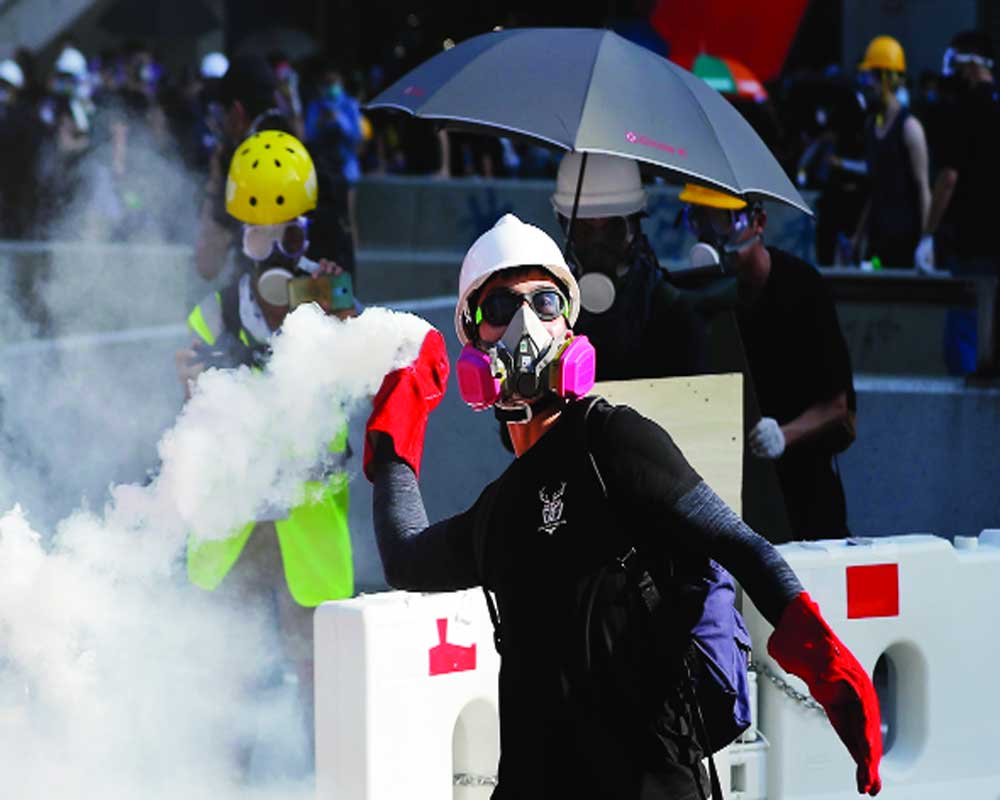China’s restrictive ways are only magnifying the pro-democracy movement and costing the economy
It seems discussions and contraventions around “special status” have even thrown civilian life completely out of gear in Hong Kong, as pro-democracy activists continue to make their point despite crackdowns and teargas fury. Things have come to such a pass that around 100 flights have been stopped in and out of the semi-autonomous southern Chinese city. Triggered by opposition to an extradition law to mainland China — that was subsequently put on hold — the stir has snowballed into a wider movement for democratic reforms and autonomy as mandated by its historical special status. And given the size of Hong Kong’s economy and global vibe, even China cannot overlook the opposition in its stressed times. A British colony for more than 150 years, China also leased the rest of Hong Kong to the British for 99 years. It became a busy trading port, and post-1950s became quite the economic powerhouse. Over time, it became an island of opportunity, attracting migrants and dissidents who fled persecution in the mainland. And though China ensured a return of Hong Kong to itself in 1997, it was under the conditional principle of “one country, two systems.” So, apart from foreign and defence affairs, Hong Kong is empowered to develop its own legal system, borders and rights, including the ones on free speech and peaceful protests. But with the heaving approach of Premier Xi Jinping’s “China first” mantra, there have been insidious ways of meddling in Hong Kong and muzzling pro-democracy legislators. Its Legislative Council has been defanged as most members aren’t chosen directly by Hong Kong voters and are pro-mainland.
These frictions have been building up over time and the extradition order was just the last straw on the camel’s back. The restlessness is now a galloping civil movement, spearheaded by the young, who want an identity and a life independent of the oppressive idea of being a “global Chinese.” China cannot steamroll this movement any longer and risk further negativity or renewed demand for full independence. And though it is wondering how far should it endure before kicking in with familiar ways, it knows that bottling gaps may lead to a bigger pipe bursts of anger. Besides, could it risk its business interests in the world’s most expensive piece of real estate and trading volumes? Technically, Hong Kong’s special status ends in 2047. But can China hold out with its belligerence till then without addressing political demands of its people to have a say about their lives?
Writer & Courtesy: The Pioneer








 OpinionExpress.In
OpinionExpress.In















Comments (0)